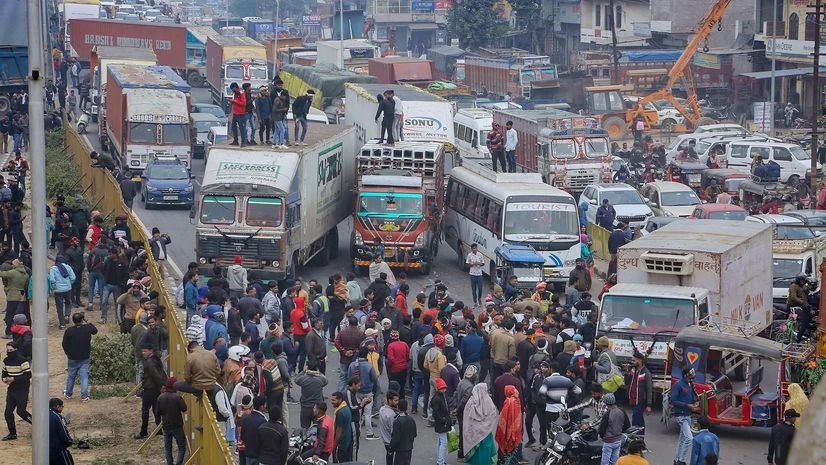The truck drivers' protest against the new law on hit-and-run cases has disrupted the whole country. Over 2,000 petrol pumps across western and northern India ran dry on Tuesday night as people flocked to get their tanks filled. The strike by truck drivers has also led to a shortage of vegetable supplies in major markets of North India. It also led to the price of several vegetables rising in some markets.
The home ministry met with the stakeholders on Tuesday evening but the protests are likely to continue in most parts of the country on Wednesday as well.
Truck driver's strike reason: Why are truckers protesting?
The discontent is around the new hit-and-run law which has been proposed in the Bharatiya Nyay Sanhita (BNS), which will replace the Indian Penal Code (IPC). Under the new law, drivers who cause serious road mishaps due to negligent driving and run away without informing the police or the administration can face punishment of up to 10 years or a fine of Rs 7 lakh.
Under the IPC, the punishment in such cases was for two years.
Truck driver's strike: What we know on day 3
On Monday, some truck, bus and tanker operators began a three-day strike against the stringent regulations. The strike was witnessed in several states, including Chhattisgarh, Maharashtra and Madhya Pradesh.
Also Read
The All India Motor Transport Congress (AIMTC) asked the Centre to address issues around the new law. "The AIMTC expresses deep concern over the recent amendment imposing a 10-year imprisonment for drivers involved in hit-and-run cases. The AIMTC reiterates its commitment to ensuring the safety and well-being of drivers while seeking a balanced approach to legislative measures," AIMTC core committee chairperson Malkit Singh said.
As the protest entered day 2 on Tuesday, long queues were seen at the petrol pumps across the country amid fears of fuel shortage. It was primarily seen in Punjab, Maharashtra, Himachal Pradesh, Jammu and Kashmir, and Madhya Pradesh. Passengers also faced difficulties in travelling via public transport in several states.
The supply of vegetables was also hit.
Chandigarh imposed a temporary restriction on the sale of petrol and diesel. Two-wheelers in Chandigarh were limited to two litres or a maximum value of Rs 200 of fuel, while four-wheelers were limited to 5 litres or a maximum value of Rs 500.
In the evening, Home Secretary Ajay Bhalla met with the stakeholders, including representatives of AIMTC, and assured them that the decision to invoke the new hit-and-run laws would only be taken after consulting them.
AIMTC urged the truck drivers to call off their strike and return to work. Following the meeting, the truck drivers called off the strike in Maharashtra's Nashik.
The Madhya Pradesh High Court issued notices to the state and the Centre after hearing two public interest litigations seeking its direction to both governments to ensure an adequate supply of essential commodities, including fuel and foodgrains, in view of the strike by truckers.

)
